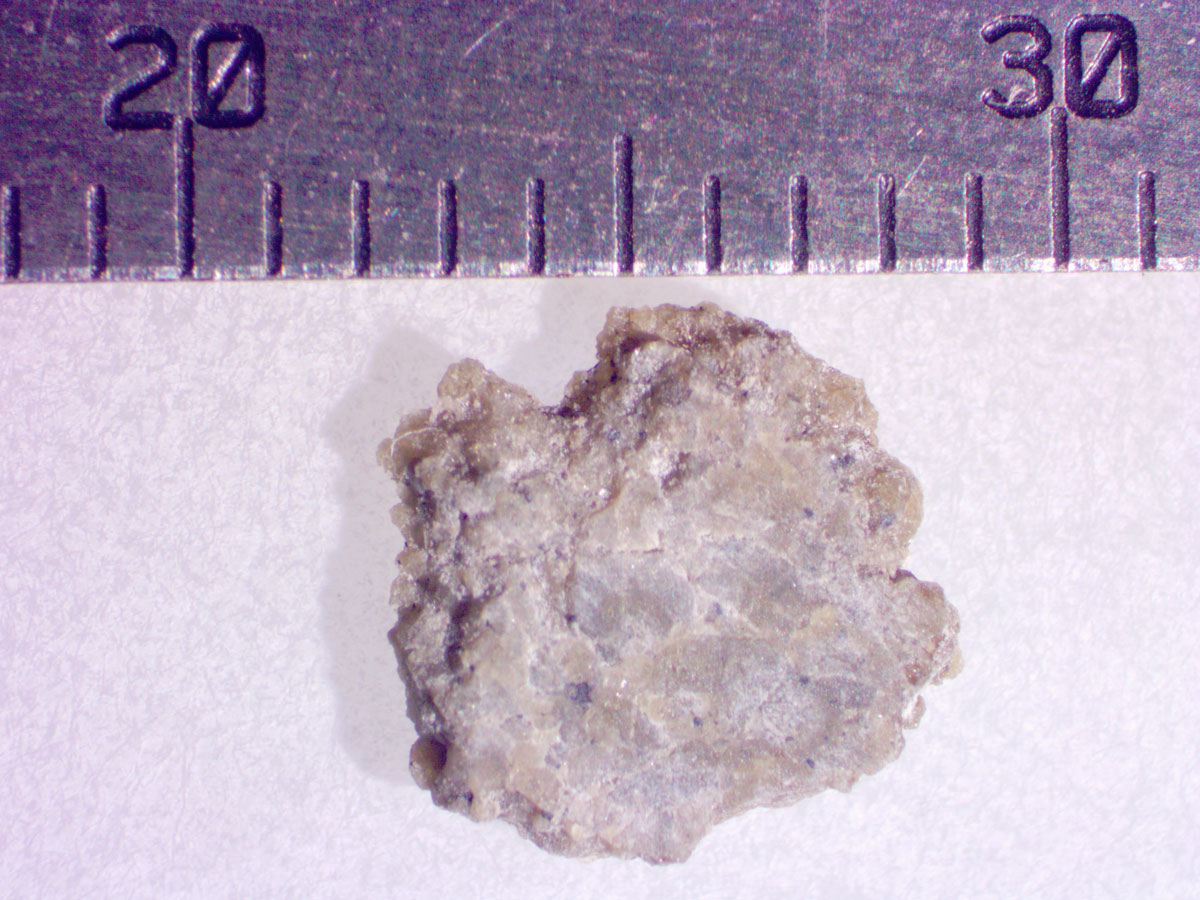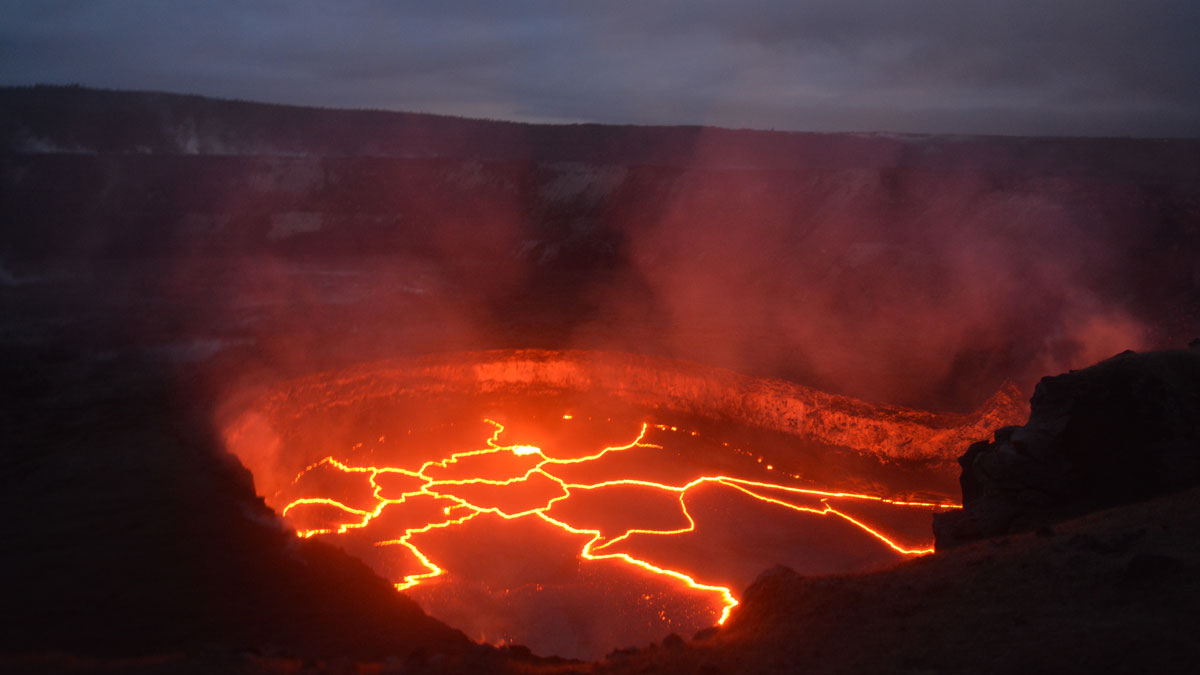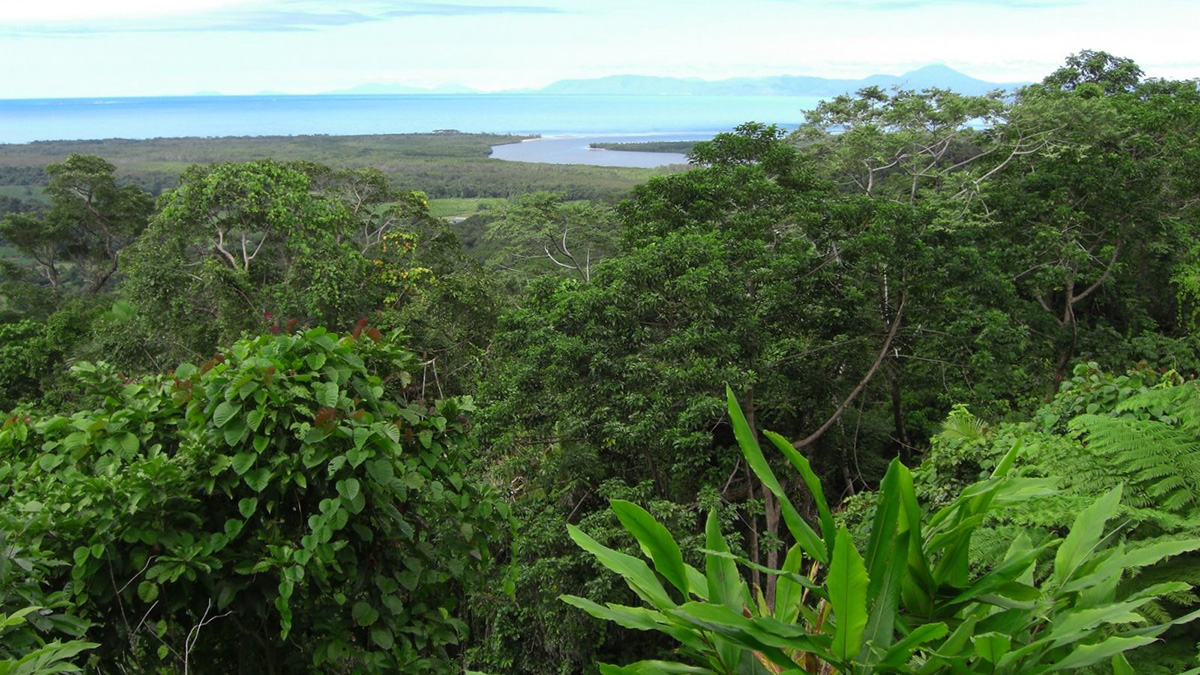A centuries-old sailor’s hack enters the ecologist’s toolkit.
News
Flipping the Sequence of Martian Formation
Analysis of the Chassigny meteorite suggests the planet acquired most of its interior volatiles from meteorites, not from the solar nebula.
Roosters, S’mores, and #EmergencyCute: A Humor-in-Crisis How-To
When natural hazards strike communities, we may not think science agencies should respond with humor. Researchers suggest that sometimes, however, humor can connect communities and bring smiles.
Volcanic Lava Lake Belts Out Its Secrets in Seismic “Songs”
A cacophony of magma displacements and volcanic gases recorded underneath Kīlauea’s roiling lake of lava could one day provide information to help predict future eruptions.
Tree Mortality Risk Surges in Australian Rain Forests
Researchers link vulnerability to “atmospheric drought” associated with climate change.
Galaxy Mapper Tracks Asteroids Closer to Home
The Gaia mission’s asteroid survey will help dig deeper into the solar system’s rocky history.
The First Look at Our New Astronomy Paradigm
Five galaxies, two nebulae, an exoplanet, and the early universe—JWST’s first images provide a cross section of the science yet to come.
Satellites Show Magnitude of Human Influence on River Sediment Flux
Dam-building has decreased the amount of sediment transported by rivers, while land use changes have increased the amount.
El granizo que colapsó a la Ciudad de México
Cuando una granizada intensa golpeó la capital de México la semana pasada, los ciudadanos se empezaron a preguntar si el cambio climático podría ser la causa. Pero, ¿es esa la pregunta que nos debemos hacer?
Precession Helped Drive Glacial Cycles in the Pleistocene
By studying bits of rock scooped up by ancient glaciers, researchers have pinned down that recent glacial variability was driven, in part, by changes in the direction of Earth’s axis of rotation.










